The privilege of perspective featuring Elizabeth Alexander
Transcript
[Elizabeth Alexander, poet, cultural advocate, and the president of the Andrew W. Mellon Foundation. A Black woman wearing a black dress and gold jewelry.]
ANNOUNCER: Please welcome Elizabeth Alexander.
[applause]
ELIZABETH ALEXANDER: Good morning. It is wonderful to be here with you, and it is wonderful to be back here. Let’s take, as a starting point, that when there is an excess of wealth in one place, there is need in another place, and thus there is a moral obligation to share. That is essential, just as a principle of our work in philanthropy. And as a steward of immense resources, moving outward with an eye toward making meaningful difference in the world, each philanthropy and its staff have an obligation to know the communities they work with deeply, so that we can trust that glorious work is happening.
For us to be able to be partners in a positive and rigorous way, thinking about how we learn from each other and how that is a value of our work, we have an obligation to staff properly with people who have real grassroots experience in fields. Those fields could be classrooms, small arts organizations, community activism, making art itself, and through their lived experience, walking through the world with a particular orientation and set of eyes on the world.
I think that right now, what’s really exciting is that there’s a generation of philanthropic leaders with a different set of experiences, professional experiences, life experiences, and we’re trying to bring some new tools to help people move through uncomfortable conversation and hopefully experience what I think is the real joy, the lifetime joy of doing work that has a justice orientation. That is joy. That is sustainable. I know no other. The poet Lucille Clifton said, “I come to comfort the afflicted and afflict the comfortable.” I think this is not about wanting anyone to dwell in discomfort. Rather, I believe that if we trouble the water, we will move more inexorably in the direction of justice.
I always ask myself, how can we be helpful, in addition to the money that philanthropy has to offer, to the empowered communities that we work with? What are the resources and insights and collaborations that we can offer? I think partnerships can be very fruitful if we remember with humbleness where our expertise lies, as well as what we are learning from the people that we work with. At the end of the day, we know who the work belongs to and it is those communities in whom we entrust the hard work of making durable change in the world. But I think that partnership is what lets us be helpful with our acumen to make good relationships.
At the Mellon Foundation, we are devoted to the humanities, arts and culture, and higher education. The value of higher education—and I can hardly believe this now—in public opinion is no longer a given. Public opinion has been evaluating the value of a college education in a steeply, steeply dropping fashion, to the point where some are questioning whether it is meaningful for folks to go to college at all, which I think is actually related to increased access to college. You give more people a thing and then you say it doesn’t matter very much. If excellent and exquisite higher education is of value to anyone, it must be available to everyone. And in higher education, if the ideas and visions of groups of people, civilizations of people, countries of people, types of people, have been excluded from our understanding of the human experience, then, as a foundation, we must support work that gives a more complete picture of where excellence and ideas and felicity have been found throughout history and into the present. Who will teach our young people to be critical thinkers? Who will vision a just future? I must admit that right now I’m very dissatisfied with some of the uses of diversity, language and thinking in higher ed arts and culture and philanthropy because I know that many of us have expressed and enacted and embodied diversity as a bottom line value in how we do things all our lives. As Shonda Rhimes says, “The world I create looks like who’s in my kitchen.”
But as the culture changes, some mainstream organizations that have been used to their centrality and to their funding sources sometimes feel that they can’t necessarily see themselves in some of those new definitions. I don’t look at that in an adversarial way. Organizationally, though, I don’t want to say, “Okay, so now diversity is important. That’s today’s news.” So I’m going to run over to these people and say, “Let’s pay for the diversity that we should have been doing all along, crucially, that others have been doing matter of factly as best practice.” I think that I would rather take us to the uncomfortable place to invoke Darren, to let us look back at the words of James Baldwin that he wrote in the mid-1950s. He was not being hostile or adversarial when he wrote, “This world is white no longer and it will never be white again.” And this is what he meant. Let’s look at the United States. This is a beautiful, complicated, multi-voiced, difficult, thorny, gnarly, multi-experienced nation that actually holds together, I swear, even though sometimes it feels that those ties are very tenuous. We are a community. We are one thing. We are many things in one thing. That is a fact. There is richness and beauty and power and knowledge and wisdom and solutions at the kitchen table. And Baldwin is saying, let’s acknowledge that. Let’s say what the world actually is. The rotation of our resources is a democratic way of addressing the potential foibles of what we can sometimes see inadvertently through our blind spots. And I think here we are interested not so much in bringing marginal voices to the center of discourse.
Rather, I think that we need to be supporting the margins as the center shifting, and I should say, the so-called margins, shifting the center of balance and supporting the work of those people and organizations who have long been thinking about how to represent and empower our diverse communities. I think about the word philanthropy and its roots. Philo, to love, anthropose people. And I carry that as a guide—the animated love of humankind. And that’s what drives me—thinking about the root of that word in our work and what it means. I think another important principle, especially when thinking about resources, is that sometimes bigger is good, but bigger is not always better. One thing that I think is very interesting about money and the arts is that it doesn’t always scale. You don’t always need millions and millions of dollars to make an impact.
Sometimes it costs a lot of money to make a thing, but sometimes it doesn’t cost a lot of money to make a thing that has lasting value and that can change who we are and how we see the world. One of the great fortunes of my life, one of the great honors of my life, was being asked by Bryan Stevenson to write a poem that would then be set in stone at the Equal Justice Initiative Memorial. That poem, that thing cost exactly zero. And hopefully it will make people think and feel and give them a moment to meditate and take in and make meaning of all that they see at that extraordinary place. There are sculptures there that are extraordinary. And yes, it costs money to make those sculptures. Those artists were paid. That is appropriate. But when you think about what the lasting value is from that investment in art, it’s quite extraordinary and it’s very, very economical.
In addition to justice, I think that our work in philanthropy should explicitly have, as a value, freedom. I want us to add that to thinking about justice. And I think that freedom is something that I understand out of what the African American tradition has taught all of us about freedom, about what it is to be free, and about what it is to be human. Something we understand best from the experience of African Americans in this country in particular, denied both of those values, freedom, and humanity. And so I also think because I understand things better when poets give me the words for them, I understand the principle of freedom in the words of the poet Robert Hayden, in his poem, “Frederick Douglass.” A poem dedicated to that great freedom fighter. He describes freedom, thus, “We are visioning a world where none is lonely. None hunted, none alien.” That is how Robert Hayden helps us understand freedom. What would it mean if none of us felt lonely or hunted or alone? And when we learn from each other and make ourselves stronger and make our community stronger, a final word is something that I’ve learned from the poet Gwendolyn Brooks. I think that a way of embodying this justice principle that we’re thinking about today is to think about what it means, in her words, to be each other’s business. She says, “We are each other’s business. We are each other’s magnitude and bond.” And that’s what I think justice and philanthropy is all about. Thank you.
[applause]
[New gospel of wealth. What does #GenerosityToJustice look like to you? Ford Foundation dot org forward slash new gospel.]
Accessibility Statement
- All videos produced by the Ford Foundation since 2020 include captions and downloadable transcripts. For videos where visuals require additional understanding, we offer audio-described versions.
- We are continuing to make videos produced prior to 2020 accessible.
- Videos from third-party sources (those not produced by the Ford Foundation) may not have captions, accessible transcripts, or audio descriptions.
- To improve accessibility beyond our site, we’ve created a free video accessibility WordPress plug-in.
Elizabeth Alexander, poet, cultural advocate, president of the Andrew W. Mellon Foundation, on art, activism, and acknowledging adversity.
“In addition to justice, I think that our work in philanthropy should explicitly have, as a value, freedom.”
– Elizabeth Alexander
Learn more about New Gospel of Wealth
Other videos in this series
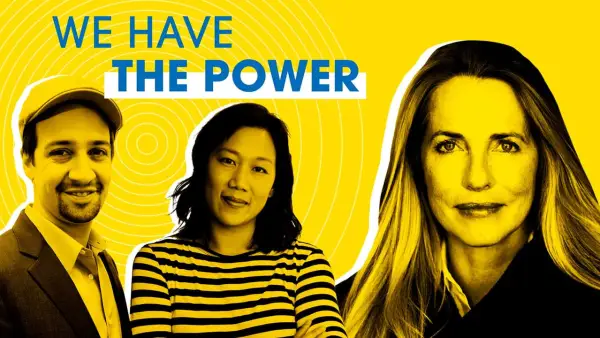
Let’s rethink giving
How can we reimagine philanthropy so that we create a future where there is justice and dignity for all? What are the root causes of the issues and how do we encourage the participation of many and not just a few?
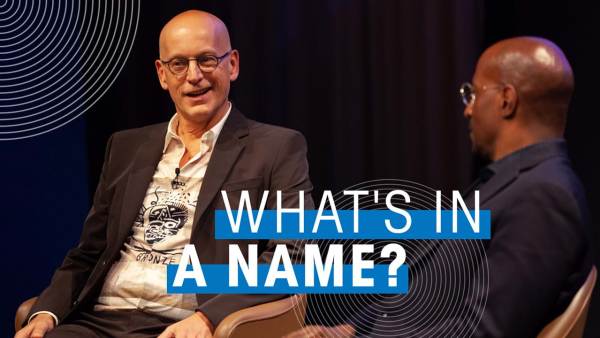
The power of a name featuring Jon Stryker and Van Jones
As a philanthropist, Jon Stryker, president of the Arcus Foundation, believes the act of naming gives power and influence to the work that is supported through his gifts. His philanthropy supports those on the frontlines of justice, providing resources and power to those who need it most.
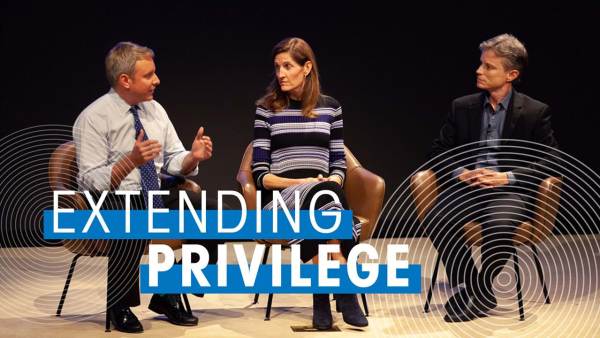
Extending privilege featuring Valerie Rockefeller and Henry Ford III
Henry Ford III, trustee of the Ford Foundation, and Valerie Rockefeller, chair of the Rockefeller Brothers Fund, discuss transforming philanthropy for the 21st century. The families have seen the value of impact investing and believe in partnerships to increase the difference that can be made.
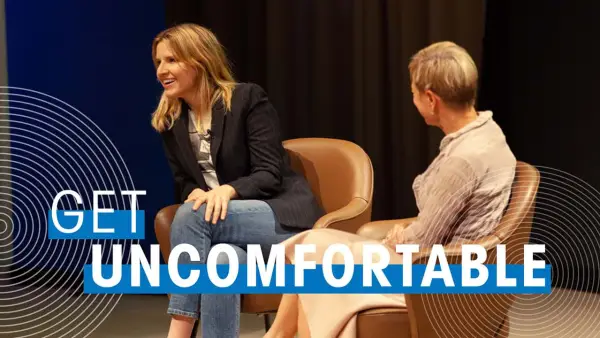
Getting proximate featuring Tara Westover and Hilary Pennington
Tara Westover, author of “Educated,” sees a disconnect between the rural and urban parts of the United States. She believes philanthropists need to be more proximate to the issues they care about, and that spending time with people who aren’t like you is key to disrupting inequality.
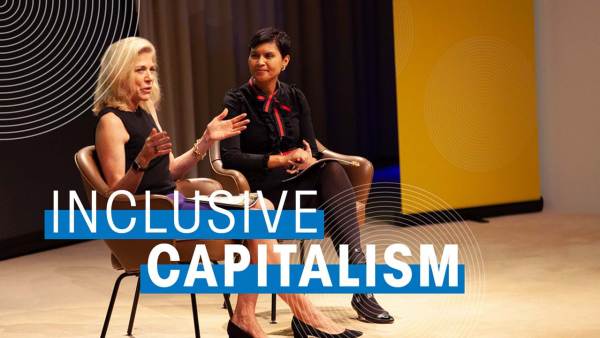
Can capitalism ever really be inclusive? featuring Lynn Forester de Rothschild and Stephanie Mehta
The top 1 percent of the United States controls 42 percent of the national wealth. Lynn Forester de Rothschild, founder of the Center for Inclusive Capitalism, explains that reimagining the economy and making it a sustainable, inclusive system that leads to strong economic growth requires reform.
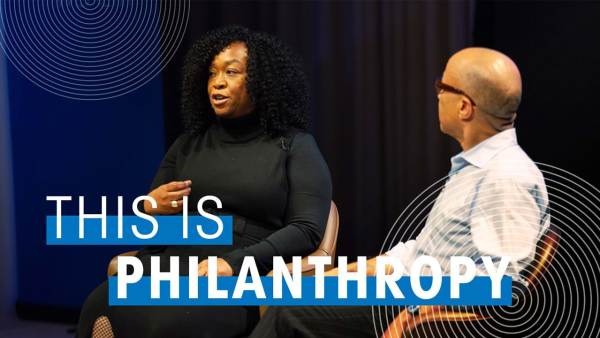
This is what a philanthropist looks like featuring Shonda Rhimes and Darren Walker
Writer and producer Shonda Rhimes has seen the power storytelling has to make change through her work, which centers marginalized people and issues. Rhimes believes philanthropy sets an example others can follow, and says supporting organizations that are already on the ground doing the work is key.
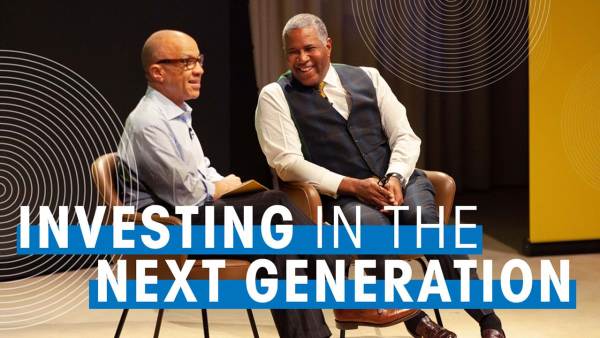
Catalyzing the potential of our time featuring Robert Smith and Darren Walker
Through philanthropy, Robert Smith, CEO of Vista Equity Partners, has alleviated the burden of student debt for a graduating class. He says private philanthropy can help address public policy challenges, such as student loan debt, and is a disruptive opportunity that liberates people to contribute to society in positive ways.
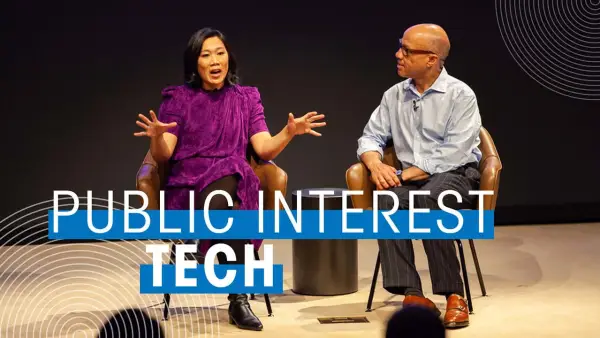
Tech funders changing philanthropy featuring Priscilla Chan & Darren Walker
The top 1 percent of the United States controls 42 percent of the national wealth. Lynn Forester de Rothschild, founder of the Center for Inclusive Capitalism, explains that reimagining the economy and making it a sustainable, inclusive system that leads to strong economic growth requires reform.
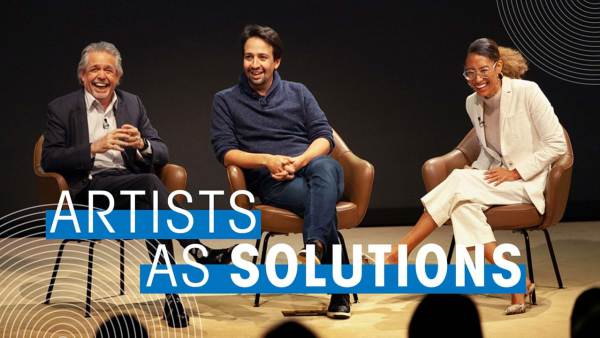
Why artists shouldn’t stay in their lane featuring Lin-Manuel Miranda, Luis Miranda Jr. and Elaine Welteroth
Composer and actor Lin-Manuel Miranda believes all art is political. He and his father, Luis A. Miranda Jr. of the MirRam Group, see the value philanthropy has to empower communities that may have been neglected, and allow them to share their stories through the arts, like Puerto Rico did after Hurricane Maria.
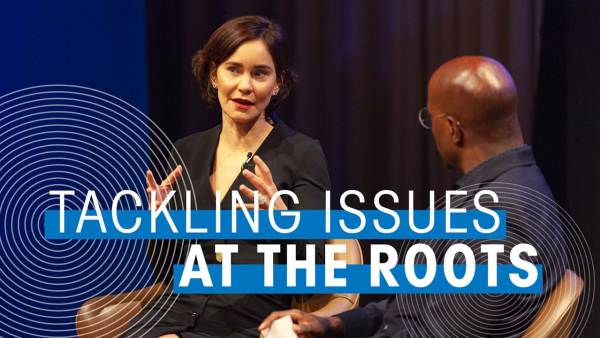
Good philanthropy needs government featuring Laura Arnold and Van Jones
Laura Arnold, co-chair of Arnold Ventures, believes policy change is the lever that will lead to sustainable change. She says we need to attack the systems that are creating the injustices we see, like criminal justice. Philanthropy can create better alternatives that governments can adopt.
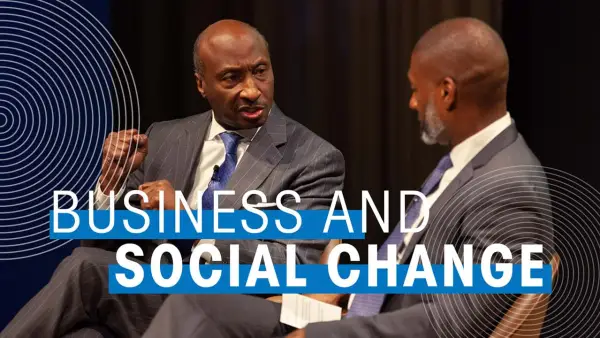
The business of justice featuring Kenneth Frazier and Charles Blow
Kenneth Frazier, CEO of Merck and Co, believes one of the greatest injustices in our society is the health disparities experienced by women of color. A zip code is more likely to determine health outcomes than genetic code. Frazier uses philanthropy to address mortality rate and wants to see more medical personnel listen to their women patients and patients of color.
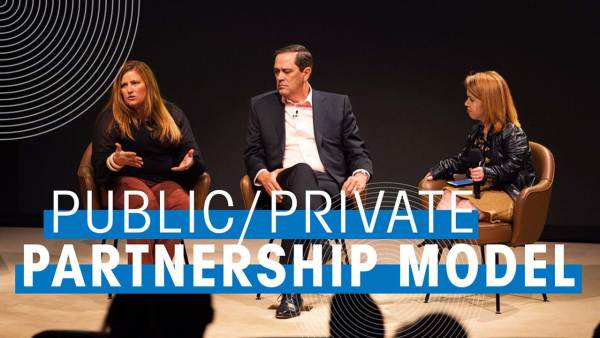
Public-private partnership: A new model for lasting impact featuring Jennifer Loving and Chuck Robbins
Jennifer Loving, CEO of Destination: Home, says a public-private partnership, like the one between her nonprofit and Cisco, headed by Chuck Robbins, can help create a model for the future of philanthropy, and tools like social bonds can help address some of the biggest crises of our time.
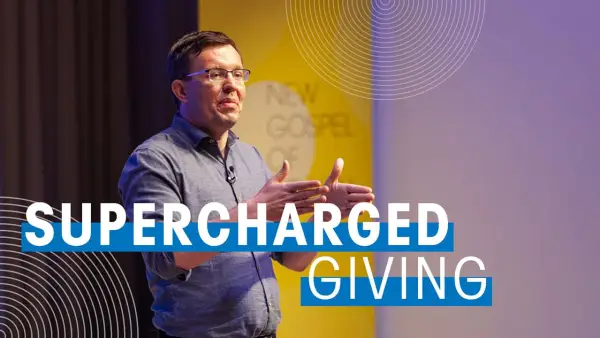
The new power of philanthropy featuring Henry Timms
CEO of Lincoln Center Henry Timms asks how philanthropy can supercharge civic engagement. Timms, who started Giving Tuesday, says trust-based philanthropy needs to shift from generosity to justice, driving more participation from more people, and encouraging meaningful ways to participate and collaborate.
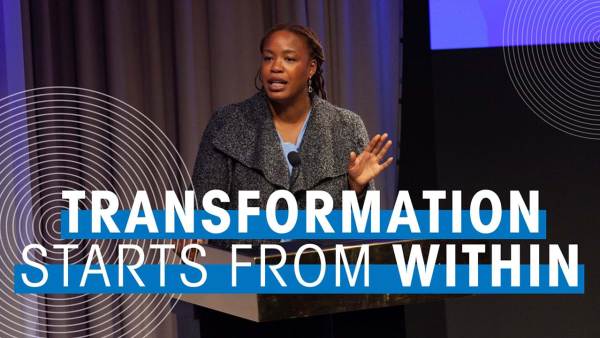
Transforming organizations from the inside featuring Heather McGhee
Heather McGhee, distinguished senior fellow at Demos, shares her experience of working to make the Demos think tank more diverse and led by people of color. Institutional racism, however slight, drives inequality, she says, so transformation needs to be a must-have and not a nice-to-have.
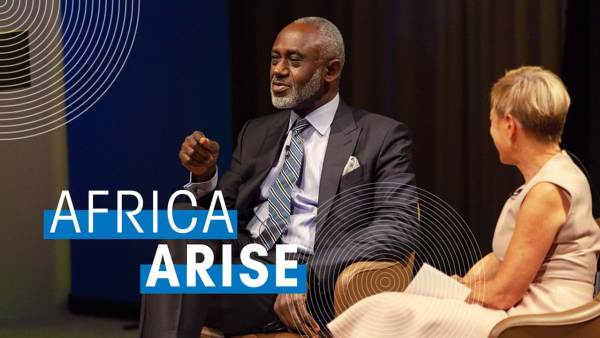
Africa, your time is now featuring Gbenga Oyebode and Hilary Pennington
Ford Foundation trustee Gbenga Oyebode has seen the value of impact investing on the African continent. He believes philanthropy should not just be giving, but investing with a social impact and an economic return. Giving is inherently part of African culture, but needs to be more strategic and collaborative.
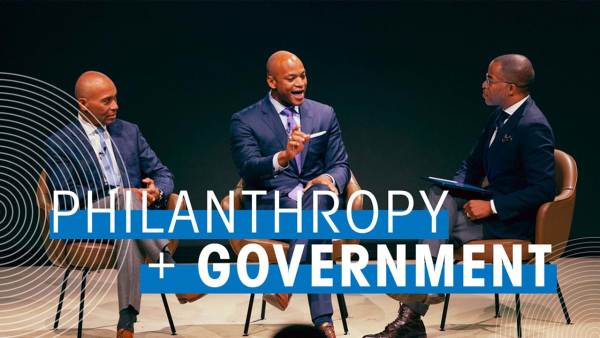
Why good government needs philanthropy featuring Deval Patrick and Wes Moore with Jonathan Capehart
Wes Moore, CEO of Robin Hood, and Deval Patrick, managing director of Bain Capital, see philanthropy working hand-in-hand with government in the fight for equality. Philanthropy can often provide the initial capital needed while government can take over and scale the solution.
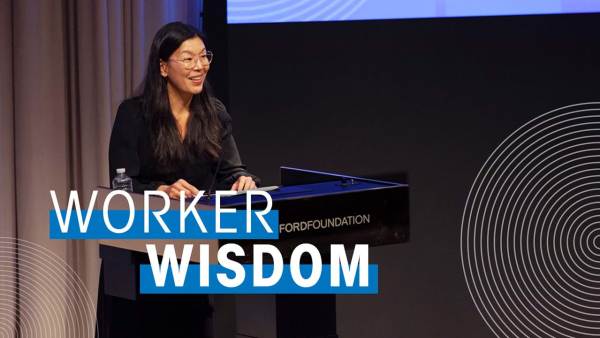
Bringing hidden labor to light featuring Ai-Jen Poo
Ai-jen Poo, executive director of the National Domestic Workers Alliance, says the sector of caregivers and domestic workers continues to grow. Building a future of work that works for all is centered on justice-based philanthropy and not a generosity model.
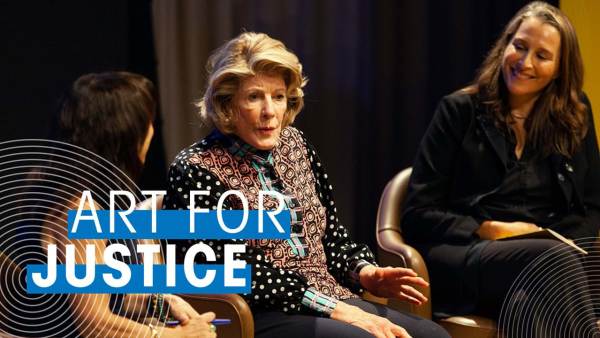
Art for Justice featuring Agnes Gund and Catherine Gund with Maria Hinojosa
The Art for Justice fund was created to help end mass incarceration. Founder Agnes Gund says philanthropy is about addressing issues like this. Catherine Gund believes art has an important part to play in the fight for racial justice and can help change the policies that led to mass incarceration.
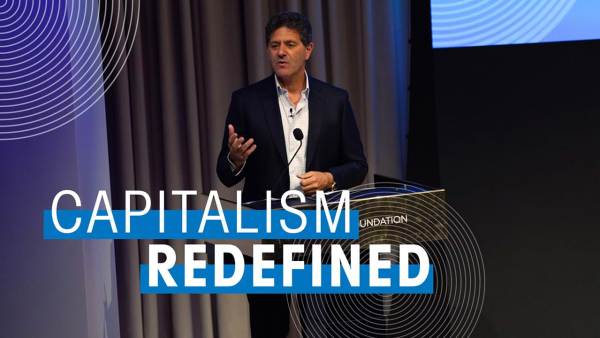
Capitalism redefined featuring Nick Hanauer
Entrepreneur Nick Hanauer asks us to reimagine the economy. He believes we need to change our beliefs about the economy to create a more just, more equitable society for all. By choosing better economic beliefs, we can change society for good.
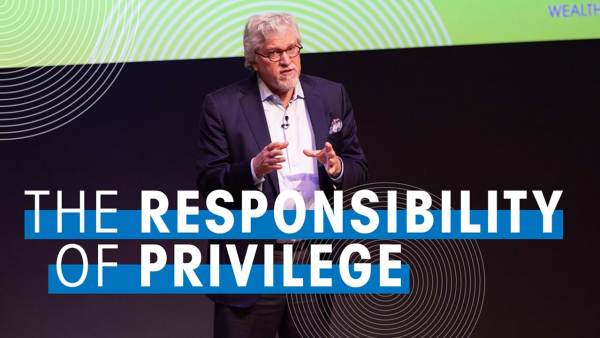
On using power and privilege for change featuring Jeff Raikes
Jeff Raikes, co-founder of the Raikes Foundation, says dismantling racism requires philanthropy to ditch its colorblind approach. People in power need to acknowledge that privilege is invisible to those who possess it. Privilege and power need to be transformed into a force for changing our society for the better.